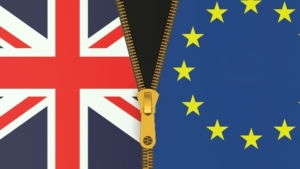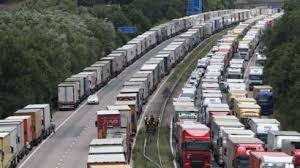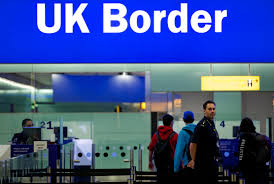Post Brexit – “Rien ne va plus” for the end of transition period

“Rien ne va plus” – not my words, but those of Prime Minister, Boris Johnson during a presentation to 250 invited business and industry-association leaders this week. The event was hosted by Michael Gove and scheduled to last an hour. Johnson was present for less than 15 minutes and the meeting closed after 21 minutes with no opportunity for questions.
Tuesday’s ‘call to arms’ followed the Prime Ministers announcement on Friday of the failure in the UK and EU negotiations to reach agreement on a trade deal to come into effect on 1 January 2021 after the UK has left the single market and customs union, stating that: “the UK must prepare for the transition to end without a Brexit trade deal, and with a default to World Trade Organisation terms for trading with the EU.” –
Although no-deal is widely predicted to be the most economically damaging outcome, Johnson told participants: “Our job is to create the platform for dynamic businesses such as yours to compete and to grow.”
“It is vital that everybody on this call takes seriously the need to get ready, because whatever happens – whether it’s Canada or Australia – change is going to happen.”
“There is a big opportunity for this country, and we want to help all of you to seize that opportunity.”
Gove said: “I am hugely appreciative of the efforts that so many companies have made over the course of this year, both to help us deal with the Covid crisis and also to prepare for the end of the transition period.”
“We know that this December 31 we will be leaving the customs union and single market come what may. It’s in law, and it’s a fact that the EU and UK accept as immoveable, and that means we need to make sure we’re ready.”
Attendees later described the short call with the Prime Minister and the Cabinet Office Minister Michael Gove as “terrible”, “disappointing” and “more of a lecture”.
Others said that: “It felt like a box ticking exercise – so they [the Government can say – ‘yep’, we’ve spoken to business”.
The Prime Minister, in using his ‘Roulette’ analogy, can see that the ball has landed in the ‘hard’ Brexit slot. The options of a soft Brexit – favoured by industry, academics and middle ground politics – ruled out by the Government in discarding continued membership of the single market and customs union; and the option of a favourable trade ‘deal’ – seen as simple and straightforward to negotiate by the Government – ruled out by inability of the UK to understand and work around the EU clear and long-published ‘red lines’. EU Red lines were established and written into the negotiating brief after unanimity amongst the European Parliament, European Council and the Parliaments of 27 EU member states– and amendment of which would require communication and unanimous agreement to the changes before the European Commission team could discuss them with the UK.
The Prime Minister acknowledged that Covid had created “too much apathy” in the business community and they “needed to get ready” for Brexit. And thus, he shifted the onus for any disruption to continuity of trade at the end of the Brexit transition from Government to industry.
Gove ended the call by describing ending the largest single market and customs union in the World as “a bit like moving house – a bit of disruption till you get used to a bigger and better house”.
The meeting also comes a week after Cabinet Office Minister, Lord Agnew, criticised businesses for their lack of preparations and for taking a “head in the sand approach” to the new and untested regulatory and operational post-Brexit trading environment – adding that traders “really must engage in a more energetic way” if they are to be ready for the end of the transition period on 31 December.
Meanwhile, as organisations begun to digest the 270-pages of guidelines that the UK Government published at the beginning of October, trade consultants Blick Rothenberg advised that thousands of UK businesses may need to set up an EU presence if they want to continue to export goods to European markets. Both EU and UK law will require companies to “have a door to knock on” if there are any disputes over payments and compliance with the new customs regulations as the UK becomes a ‘third-country’ from 1 January 2021.
The reality is that EU companies will not want the additional risk and cost of being responsible for compliance with customs procedures will amend contracts with UK suppliers. They will contract for goods and products to be delivered to their warehouse door – with the UK exporter taking that responsibility.
There is always the option to pay a recognised ‘distributor’ – or a customs and freight forwarding agent – in the EU to prepare and manage the new paperwork and ensure that payment obligations are satisfied. A BBC investigation found that the combination of uncertainty and complexity in the new regulatory regime, few agents will be prepared to take that risk – and that those willing to take a risk will likely charge a “king’s ransom” to do so.
Simon Sutcliffe of Blick Rothenberg told the BBC: “Any agent will be ‘joint and severally liable’ for any customs debt should something go awry – or should the local fiscal authorities find a problem with the consignment. Understandably, these agents charge a lot of money to bear that risk.”
Another option will be for UK exporters to set up a registered office in the EU – with the staff and technical resources necessary to file the relevant paperwork and keep relevant records.
EU companies exporting to the UK face even greater problems. At least the EU rules and procedures are known and have been operational for decades dealing with all other ‘third-countries Worldwide. The UK Government is making up rules and regulations where none have existed since the early 1990’s – whilst also trying to recruit up to 5,000 new customs and excise staff to oversee compliance and commissioning new forms, systems and procedures for customs clearance and payment of duties.
Consider UK supermarkets. They will not want to take responsibility for completing the customs import procedures for tens of thousands of EU suppliers – the additional operational costs will put up prices – and for any goods on restricted lists, such as some sanitary and animal products, there will be certification procedures and costs of ensuring ‘trace-ability’ not required whilst the UK was an integral part of the single market and customs union with ‘free’ movement of goods.
Sutcliffe concludes that thousands of businesses on each side of the channel “just don’t realise the implications of trading with each other from 1 January – and they have very little time to work it out.”
‘Rien ne va plus’, Prime Minister?










